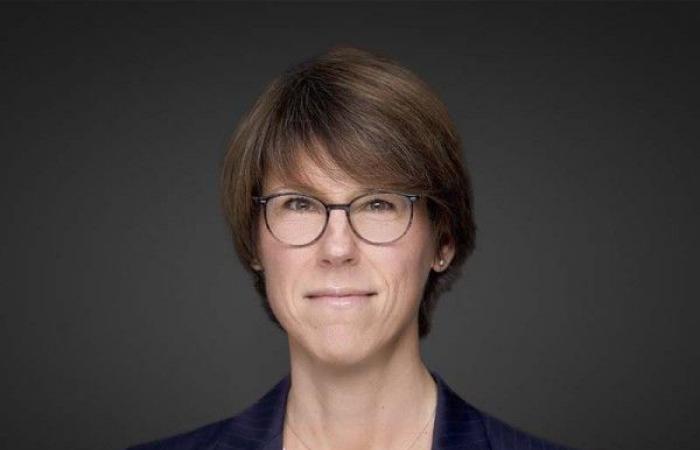After infrastructure through Ancala, the group will enter private debt through “asset-backed finance”. Christel Rendu de Lint, co-CEO, looks at trends in asset management.
The Vontobel group held its investor day on Thursday and a press conference in Geneva on Friday. At the end of the lake, Christel Rendu de Lint, co-CEO, presented his strategy, that of an investment house serving private and institutional investors (currently 50/50 ratio). A large part of its revenues are recurring (85%) and its dependence on interest rates (9% in the first half) is much lower than the competition (30% on average). The group’s clients in fact call on the investment skills and not the balance sheet of this group which has 80 specialists between Geneva and Lausanne and which manages a total of 228 billion francs at the end of September. Christel Rendu de Lint, co-CEO of the Vontobel group, answers questions from Allnews:
You decided to invest in private markets two years ago. What stage of your deployment in this area are you at? Where do your skills lie here?
Our skills lie in infrastructure investment since we acquired a stake in Ancala, a player specializing in “mid-market infrastructure” (4 billion under management). Infrastructure skills are particularly interesting because this segment is very diversified. Indeed, the infrastructure sector is generally less correlated to the economic cycle, infrastructures, and in particular those selected by Ancala, being necessary independently of economic conditions. It’s a very resilient model. Cash flows are generally linked to inflation. Finally, Ancala itself has an approach based on operating leverage rather than financial leverage. Indeed, it seemed important to us to prioritize improving the underlying assets of an investment.
“In asset management, investors’ eyes have focused on bonds.”
These are our unique skills at this stage. We will also expand, thanks to our TwentyFour Asset Management boutique, into “asset-backed finance” (note: bonds issued by banks, “guaranteed” by a diversified pool of loans with similar characteristics). We will seek to complement these skills as opportunities arise.
So private equity and private debt are not yet in your portfolio, but are they destined to be there in the future?
Concretely, we are going to enter private debt with “asset-backed finance”. However, we do not yet have a concrete plan regarding private equity. Private markets seem interesting to us because of the diversification they offer.
Many investor meetings are on this theme this fall. Why would customers come to Vontobel?
We will offer clients the skills of Ancala, which has a strong mid-market focus in infrastructure. The latter is here capable of generating transactions on a bilateral basis, of having strong added value in the management of the underlying asset, in particular because it works with dedicated industrial partners and in particular former directors or presidents of industrial companies. We demonstrate our know-how through our results. Ancala has just closed its third fund and exceeded its own expectations in a fundraising market that was nevertheless complicated.
In asset management, you have a positive overall fund inflow of 2.6 billion after 9 months, and negative of only 0.5 billion in institutional. What is the reason for this institutional improvement?
In asset management, investors’ eyes have focused on bonds. The flows initially returned to fixed rate instruments. We are part of the market trend. Fund outflows concern “actively” managed stocks, emerging markets (all classes), “multi-asset” management – an area where we do not record any outflows.
“Private markets seem interesting to us because of the diversification they offer.”
What does the TwentyFour AM boutique represent in your group, which benefits from a very good ranking of its funds in terms of performance?
TwentyFour AM manages just over 20 billion francs in assets. Combined with the Fixed Income boutique, we reach just over 40 billion assets under management in the fixed income asset class.
Most analysts summarized the financial consequences of the US presidential election by predicting that Donald Trump would be good for stocks and Kamala Harris for bonds. Will stocks outperform in the medium term?
This is an excessively reductive view of the situation. We will wait for the decisions that will be taken and the concrete measures. Investing is the result of in-depth fundamental analysis and not such a shortcut.
It is certain that the economic context, which is essential and will be influenced by the president in power, remains buoyant, particularly in the United States. Stocks benefit from this. The environment is also quite lenient for bonds since central banks are lowering key rates.
What is your goal for 2025?
We target operating revenue growth of 4-6% through the cycle, maintaining a strong balance sheet and return on equity of over 14%.






